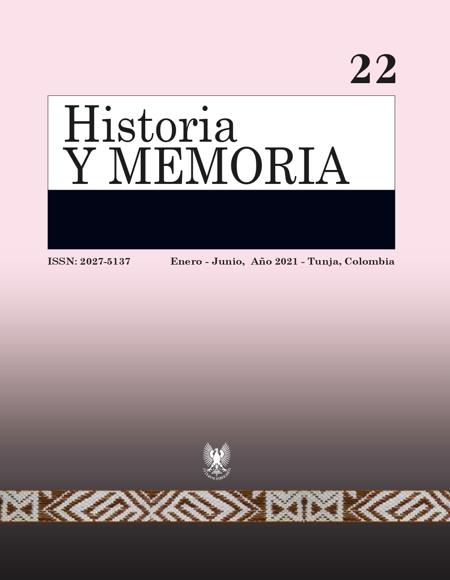The challenges of academic history in the digital age

Abstract
In this work, some of the challenges are noted, that the digital age has imposed on the task of the historiographer, and the obstacles faced by students and future historians, considered to be «digital natives», in order to develop themselves professionally. A revision was made of the sources related to the topic, in which were found the problems faced by education and the practice of history in the digital age. It is noted that students have needed to enter the digital world autodidactically and that academia has not proposed theoretical-methodological changes for its teaching and practice. Some of the obstacles that young people must face are the management of enormous quantities of data, with the capacity to analyze and store it; new sources, writings, and expressions; the hyper-textuality and the depth of the research; creativity and resources for dissemination; crowdsourcing and the manipulation of information, and the work field, epistemological changes, and the theoretical-methodological debate.
Keywords
history, challenges, digital age, education, digital natives, technology
References
Bibliografía
Álvarez Espinar, Martín. «Web semántica y datos enlazados.» Tabula, no 18 (2015): 21-43.
Aramberri Miranda, Josú. «Patrimonio cultural y futuro digital: uso y difusión.» Tábula, no 18 (2015): 75-82.
Baricco, Alessandro. Los bárbaros. Ensayo sobre la mutación. Barcelona: Anagrama, 2008.
Cauvin, Thomas. «Campo nuevo, prácticas viejas: promesas y desafíos en la Historia Pública= New Field, Old Practices: Promises and Challenges of Public History.» Hispania Nova, n° 1- extraordinario (2020): 7-51. DOI: https://doi.org/10.20318/hn.2020.5365.
Chartier, Roger, y Carlos A. Scolari. Cultura escrita y textos en red. Barcelona: Gedisa, 2019. Edición en Kindle.
___________. «Del códice a la pantalla.» Revista Quimera, no 150 (septiembre de 1996). https://www.javeriana.edu.co/relato_digital/r_digital/bibliografia/virtual/chartier-completo.html.
___________. «Libros y lecturas. Los desafíos del mundo digital.» Revista de Estudios Sociales, no 64 (2018). DOI: https://doi.org/10.7440/res64.2018.09.
Diagnóstico del Plan de estudios de la Licenciatura en Historia. México: UNAM/FFyL/Colegio de Historia, 2018.
Eiroa, Matilde. «El pasado en el presente: el conocimiento historiográfico en las fuentes digitales.» Ayer, n° 110 (2018): 83-109.
Febvre, Lucien. Combates por la historia. Barcelona: Seix y Barral,1982.
Gálvez Biesca, Sergio. «El historiador y sus entornos de la celulosa al bit y la Web 2.0.» En Historia y memoria en red. Un nuevo reto para la Historiografía, coordinado por Matilde Eiroa San Francisco, 41-66. Madrid: Síntesis, 2018.
Jiménez-Alcázar, Juan Francisco. «La historia no fue así: reflexiones sobre el fenómeno de la historia contrafáctica en los videojuegos históricos.» Clío. History and History teaching, n° 44 (2018): 94-113. http://clio.rediris.es.
Jiménez-Alcázar, J. F. «La interacción del videojuego en las aulas universitarrias: educación e historia.» Reire Revista dínnovacio i Recerca en Educació, n° 13 (2020): 1-17.
Melo Flórez, Jairo Antonio. «Historia digital: la memoria en el archivo infinito.» Historia crítica, no 43 (2011): 82-103. DOI: https://doi.org/10.7440/histcrit43.2011.06.
Muñoz Delaunoy, Ignacio. «Hacer Historia en la era digital.» Pensamiento crítico. Revista digital de Historia, no 6 (2010). https://revistas.uptc.edu.co/revistas/index.php/historia_memoria/about/submissions#submission_checklist.
Pons, Anaclet. «“Guardar como”. La historia y las fuentes digitales.» Historia crítica, n° 43 (2011): 38-61. DOI: https://doi.org/10.7440/histcrit43.2011.04. https://revistas.uniandes.edu.co/doi/pdf/10.7440/histcrit43.2011.06.
___________. «El pasado fue analógico, el futuro es digital. Nuevas formas de escritura histórica.» Ayer, no 110 (2018): 19-50.
___________. «De la historia local a la historia pública: algún defecto y ciertas virtudes.» Hispania Nova, no 1-extraordinario (2020): 52-80. DOI: https://doi.org/10.20318/hn.2020.5366.
Prades, Mario. «Escritura, fuentes y demostración en la historia digital: problemas y retos actuales.» Revista
de Humanidades, no 34 (2016): 225-259. https://www.base-search.net/Record/4bf2deae3516d07921927bd2fc2666601f2c2e79bf5fda1b1cab68985edc26fd.
Ramón, Manuel Alberto de, Pedro Paniagua y Josep M. Sanmartí. «El historiador ante los medios de comunicación digitales. Una relación nueva.» Historia y comunicación social, nº 20 (2015): 581-601. DOI: http://dx.doi.org/10.5209/rev_HICS.2015.v20.n2.51401.
Ricaurte, Paola, y Arianna Carli-Álvarez. «El proyecto Wiki Learning: Wikipedia como entorno de aprendizaje abierto.» Comunicar, n° 49 (2016): 61-69. DOI: https://doi.org/10.3916/C49-2016-06.
Seefeldt, Douglas, y William G. Thomas III. «What is Digital History? A Look at Some Exemplar Projects.» Faculty Publications, Department of History, n° 98 (2009). https://digitalcommons.unl.edu/historyfacpub/98.
Shubert, Adrian. «Essay: Lost in Digitization.» Bulletin for Spanish and Portuguese Historical Studies Vol. 39, no 1 (2014): 120-131. DOI: https://doi.org/10.26431/0739-182X.1165.
Soler-Adillon, Joan, Dragana Pavolvic, y Pere Freixa. «Wikipedia en la Universidad: cambios en la percepción de valor con la creación de contenidos.» Comunicar, nº 54 (2018): 39-48. DOI: https://doi.org/10.3916/C54-2018-04.
Téllez Carvajal, Evelyn. «Reflexiones en torno a la “ciudadanía digital”.» Revista Doxa Digital Vol. 7, no 13 (2017): 47-65. http://journals.sfu.ca/doxa/index.php/doxa/article/viewFile/34/28.
Weller, Toni, ed. History in the Digital Age. New York: Routledge, 2013. Edición en Kindle.
Periodico
Lobo, Iván F., y Maruxa Ruíz del Árbol. «El historiador detrás del increíble realismo de Assassin´s Creed». El País, Madrid, 26 de febrero de 2019. https://elfuturoesapasionante.elpais.com/el-historiador-detras-del-increible-realismo-de-assassinscreed/.
Página web
#rrchnm25years. «Roy Rosenzweig Center for History and New Media.» Acceso el 18 de octubre de 2019. https://rrchnm.org/what-we-do/.
Cohen, Dan. «Is Google good for History?.» Acceso el 27 de enero de 2020. https://dancohen.org/2010/01/07/is-google-good-for-history/.
Fundéu BBVA. «El blog de la Fundéu.» Acceso el 4 de febrero de 2020. https://www.fundeu.es/blog/por-que-la-palabra-del-ano-2019-no-es-una-palabra/.
